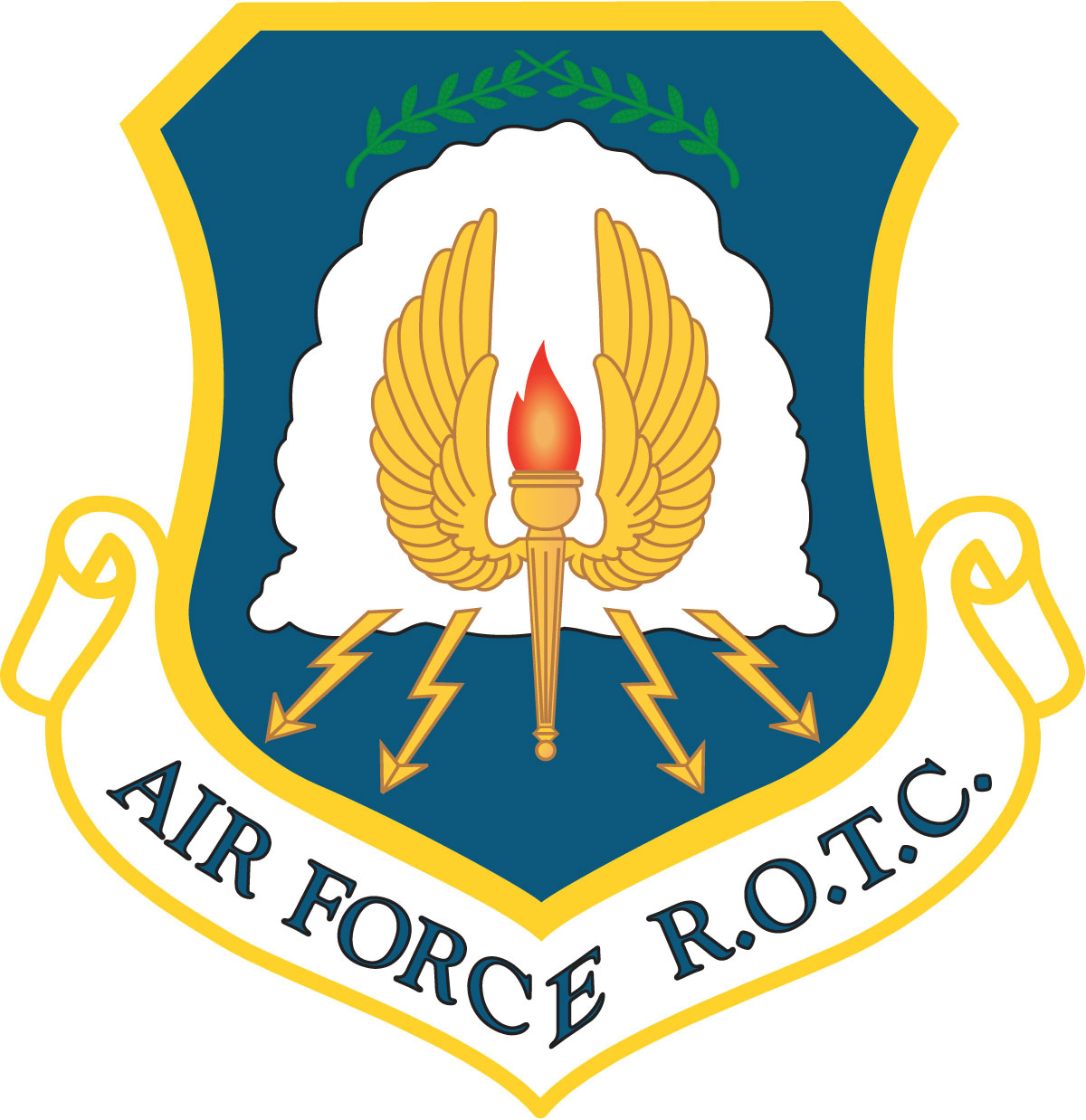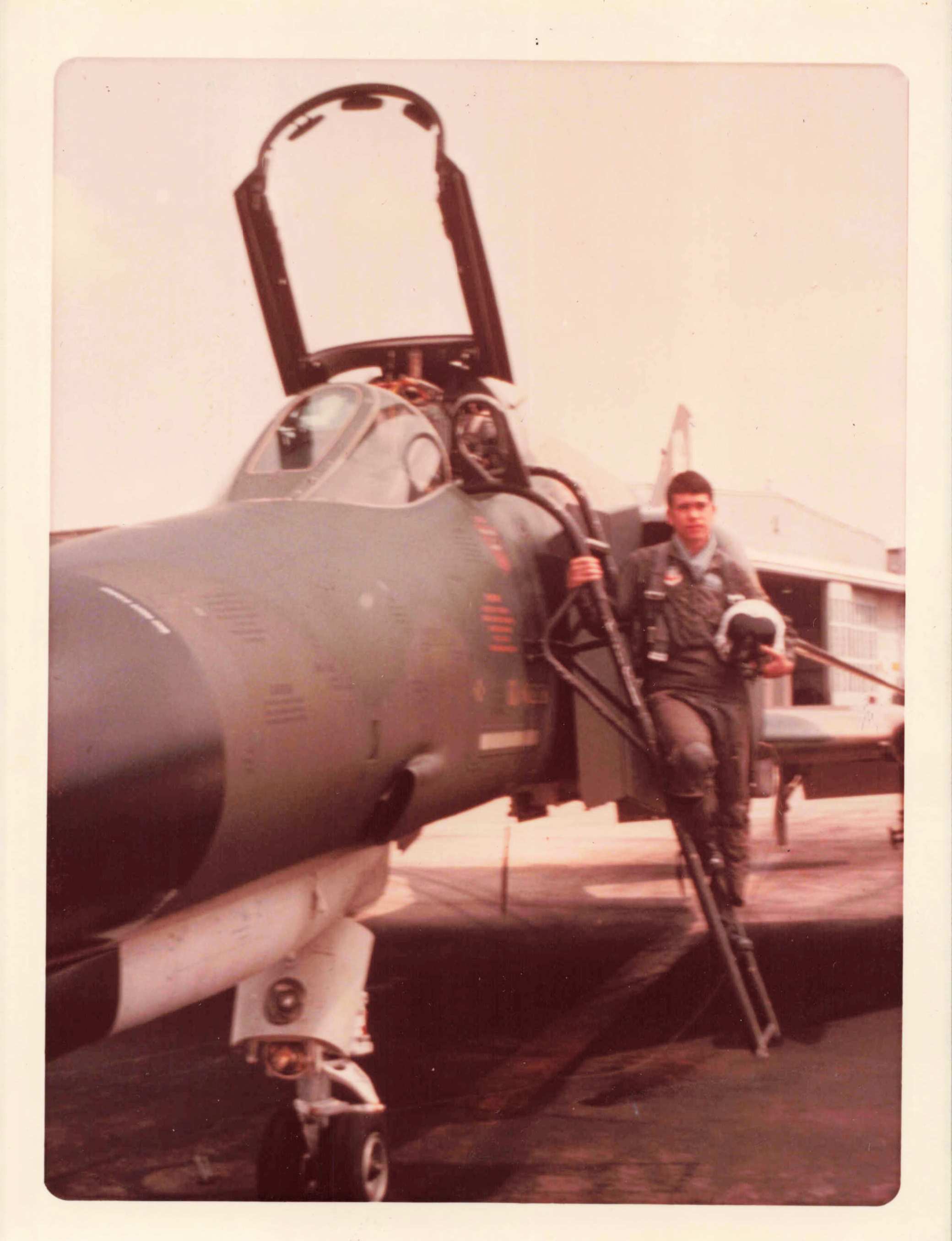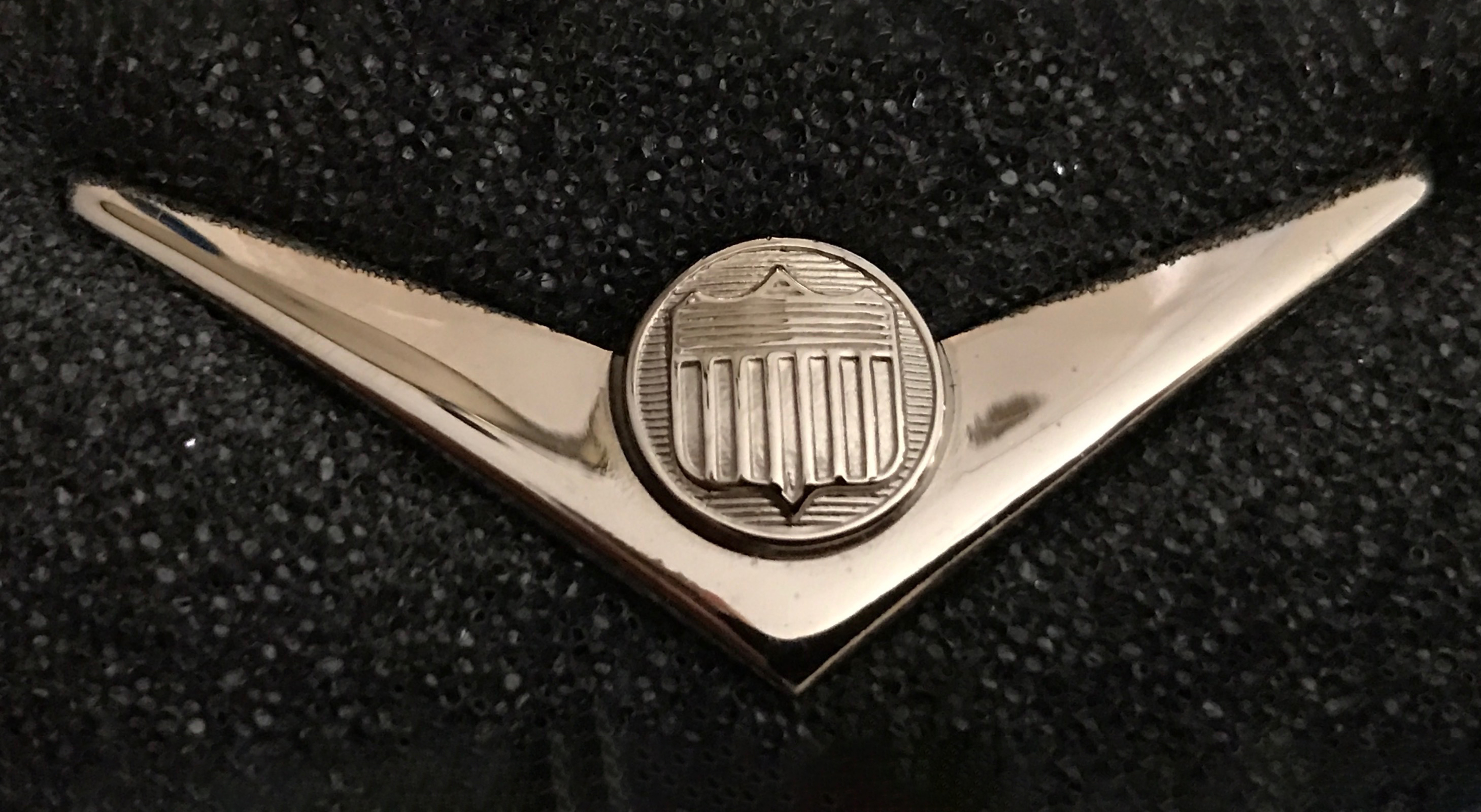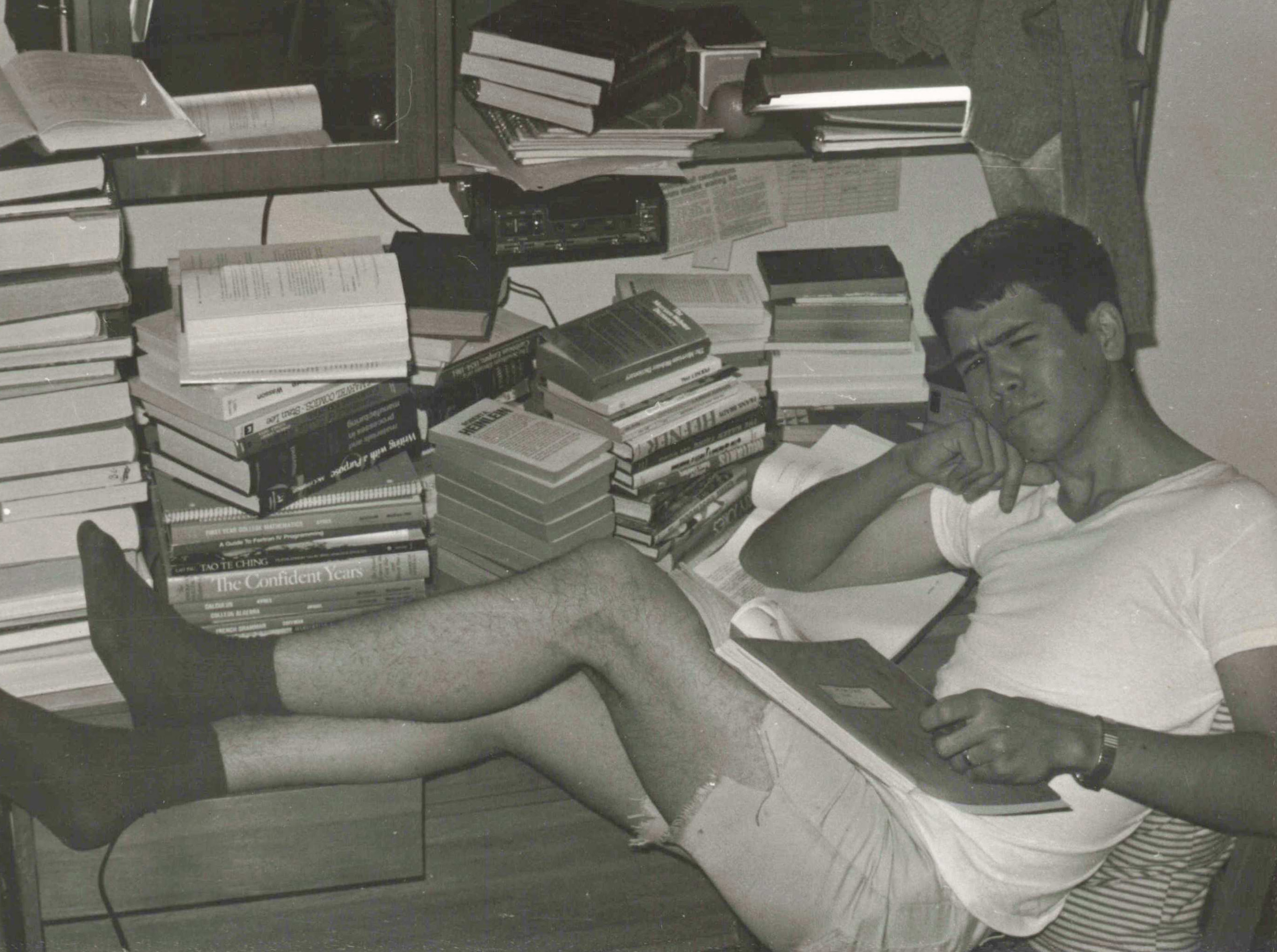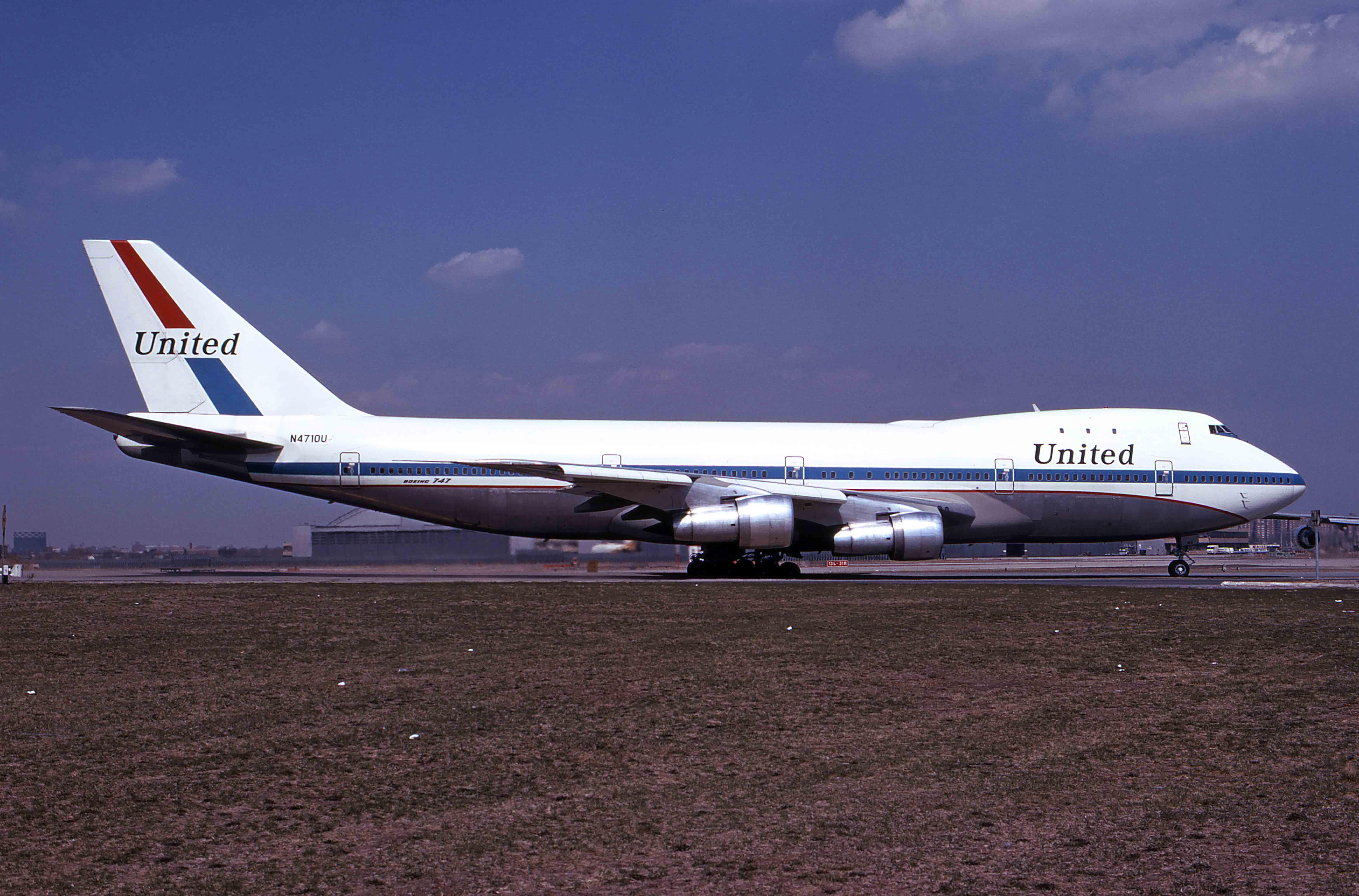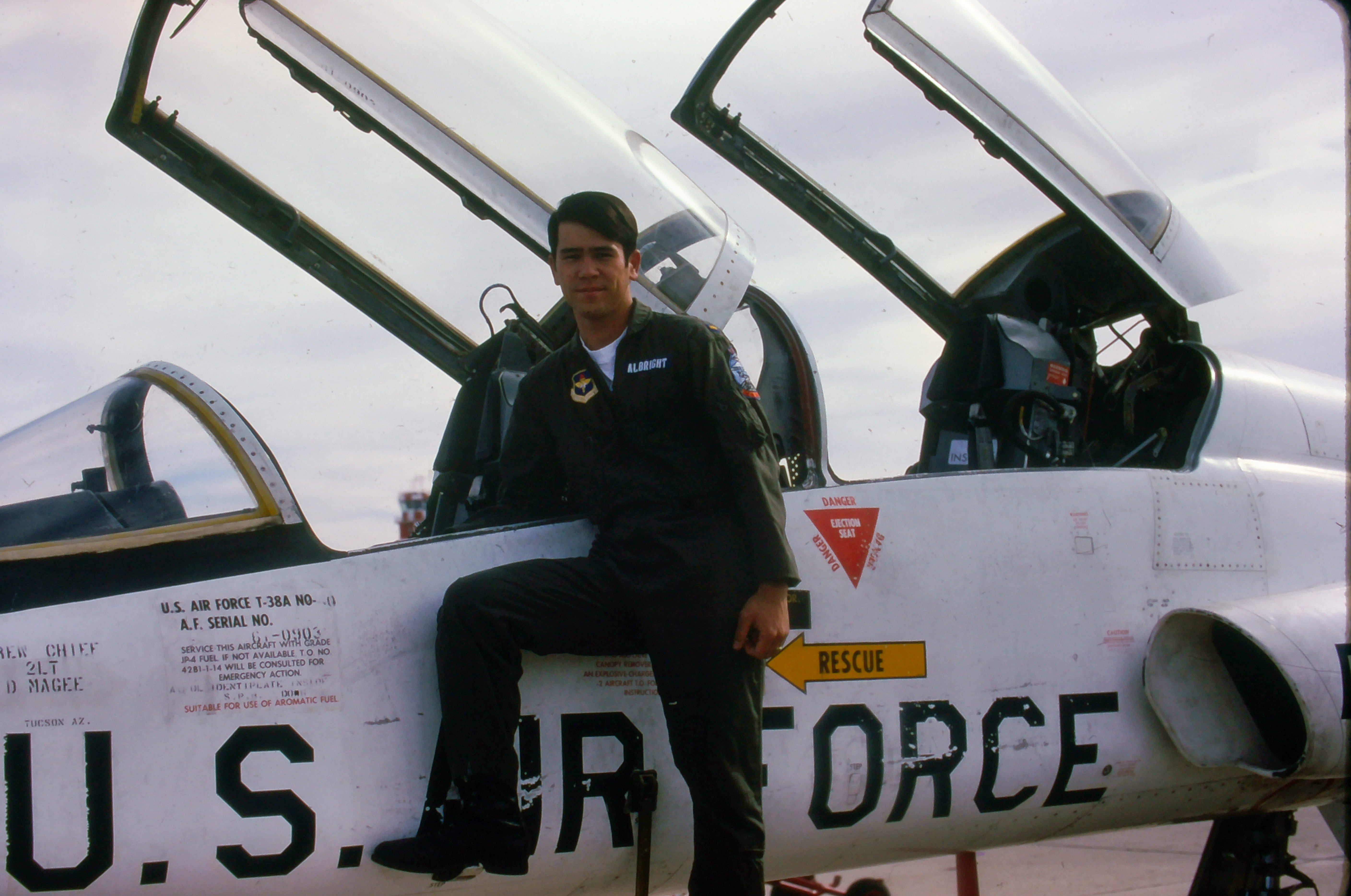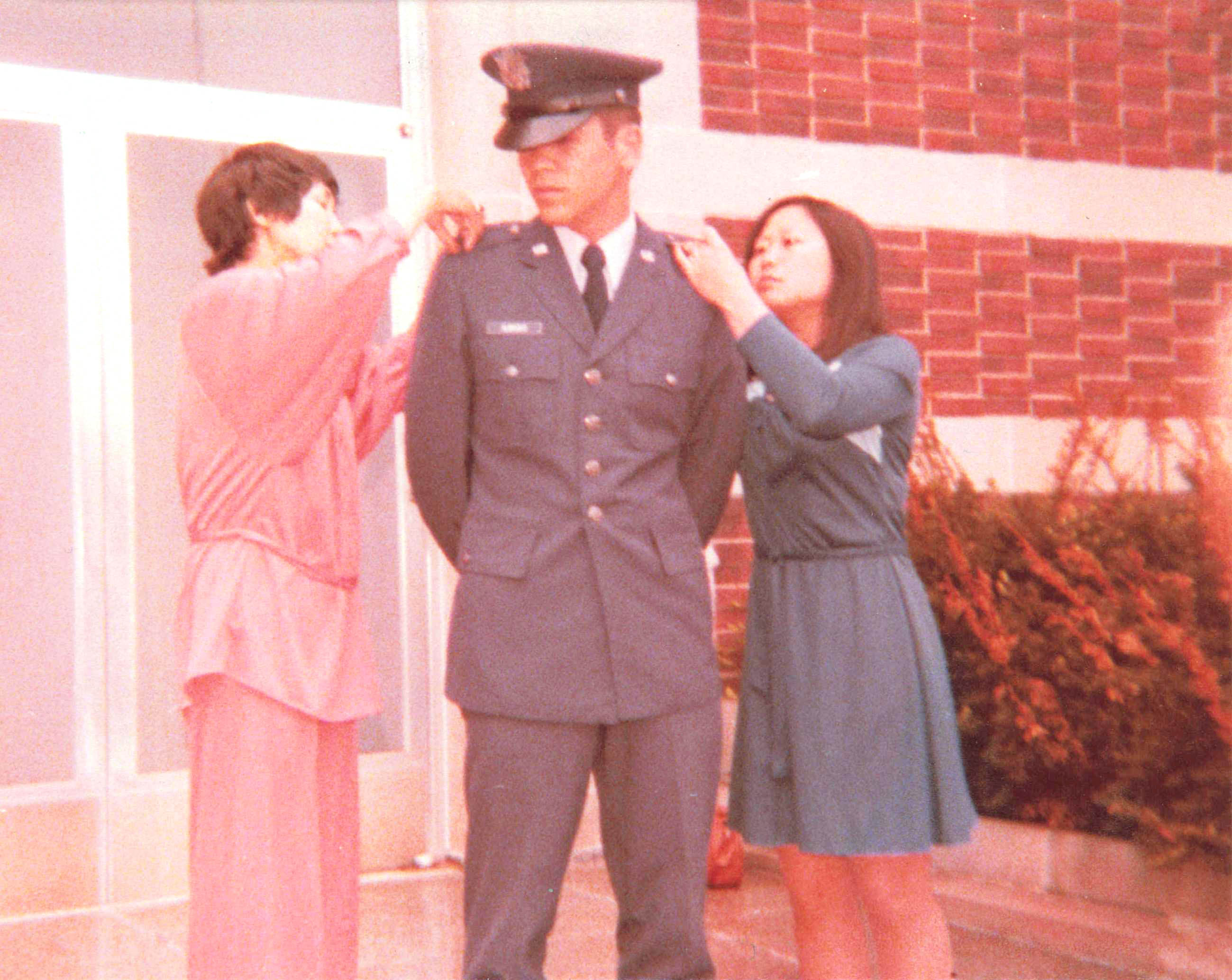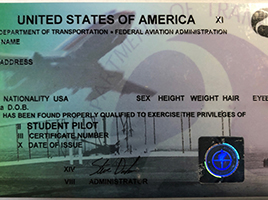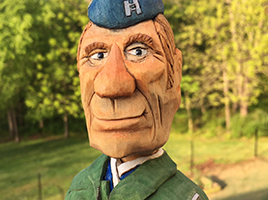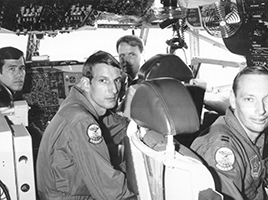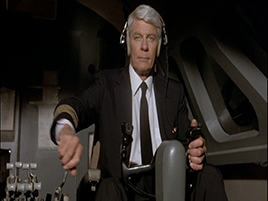I get a particular kind of question several times a year, asking for my advice on planning careers on achieving goals. At first, I wondered what qualified me to give any advice at all, but I always tried to answer sincerely. After a few years of this, I finally understood why I was getting the question, and that realization has helped to refine my answer. Now that I am retired from active flying, maybe I can put a "capstone" on that advice.
— James Albright

Updated:
2024-03-01
Why do I get this question? As I end another chapter of my flying career — Chapter 1: USAF, Chapter 2: Business Jets — and start another — Chapter 3: TBD — it may be natural to assume I had it all planned out and where I am today, is where I set out to be 50 years ago. Nothing could be further from the truth. In fact, if anything, I have been a bit of a passenger along for the ride, not making any long-term plans at all. I have had goals, to be sure. But the goals have adjusted over time and the planning has always been with a focus on the near term.
And that, I believe, is what sets some of us up for success and others for failure. We need to understand the difference between our goals and our plans, and we need to learn how to focus on what is important to achieve both.
2 — Setting a worthy and realistic goal for the long term
3 — Coming up with an executable plan
4 — Placing your focus where it needs to be
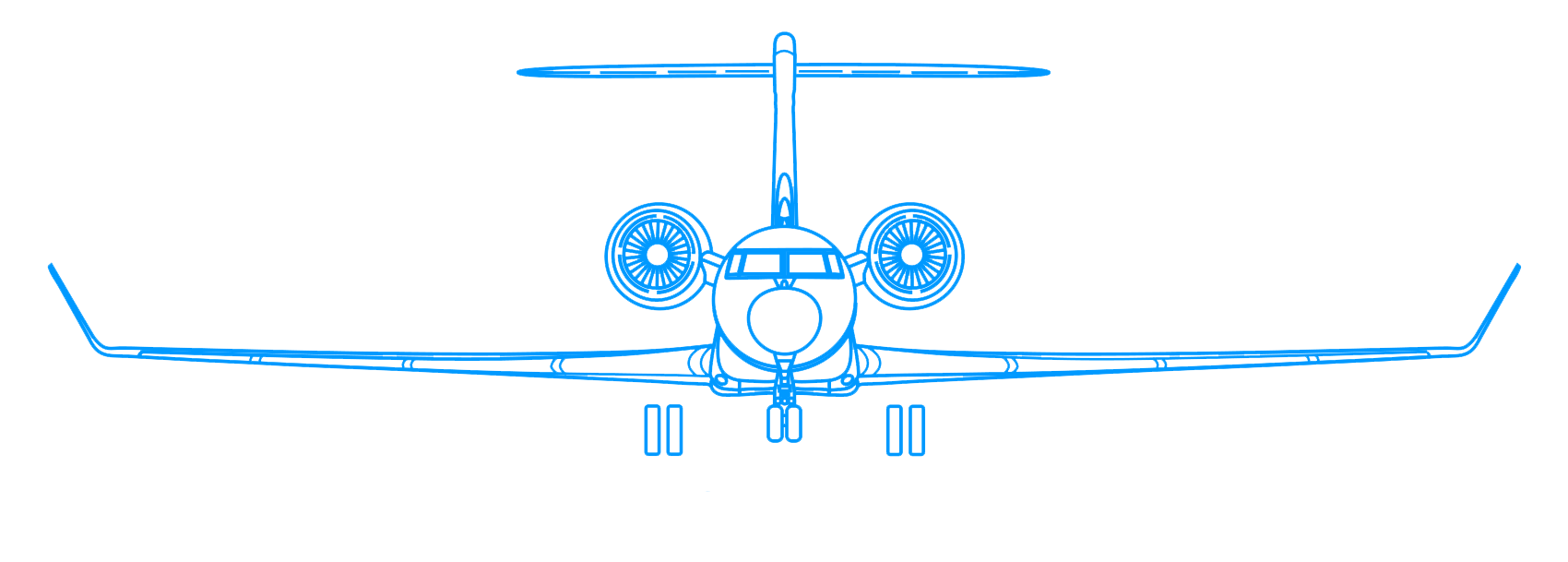
1
The question
The question varies, depending on the asker’s circumstances and age. The youngest request came from someone in high school, the oldest from someone at a career crossroad in their fifties. What is common is the goal post: they dream about becoming a [fill in the blank]. The desired end state varies, with many wanting to be airline pilots, Navy carrier pilots, Air Force fighter pilots, business jet pilots, test pilots, and even astronauts. What follows isn’t a verbatim transcript of any of these requests, but an amalgamation of several to help illustrate the advice I hope will serve the most people.
Sir,
I am a college student on an Air Force scholarship in the running for an Undergraduate Pilot Training (UPT) slot when I graduate. I am majoring in aerospace engineering, working hard in the cadet corps, and doing all the right extracurricular activities they say will get me one of the few pilot slots available. I have a leadership position in the corps and spend every available hour at the aeroclub building time. I hope to have my private pilot’s license before the end of the year and my multi-engine rating before I graduate. My plan is to get my pilot wings, fly a top-of-the-line fighter, go to test pilot school, and after a few years of that, go to NASA or one of the commercial space programs. I attend every air show I can and have met many Air Force and Navy pilots. Aviation, as you can tell, is the entire focus of my life and is the reason I do anything.
My plan has gone very well until the past semester. My grades were good, but I am told they need to be better to be competitive. Through it all, however, I just couldn’t see how what I was learning in class had anything to do with my goal of someday flying fighters or becoming an astronaut. And then came the disaster of last semester’s grades. Now they say I could be at risk of losing my scholarship, which of course would put an end to my goals.
I guess what I am asking for is some advice from someone who has been in my shoes and ended up succeeding. Specifically:
- How do you prioritize your time?
- Do you use a “to do” list or other scheduling system?
- What are the best study habits for learning something technical?
- How do you rebound from failure?
- How do you become a better you?
- How do you keep yourself heading to your end goal and avoid getting thrown off course by lesser pursuits?
Thank you.
I recognize the angst of wanting something so much you can taste it, and having those hopes and dreams threatened. When I was a sophomore in Air Force ROTC at Purdue University, I was one of 15 cadets in my year group on a full scholarship with a confirmed UPT slot. The Vietnam War ended a few years earlier and as our sophomore year ended, the Air Force decided it had too many pilots and too many pilot candidates. We were told that 75% of us would be going home for the summer break with notification that our plans to become Air Force officers would be canceled. My grades were good, but not stellar. Would I be one of the three-quarters to have the dream come to an end?
We called it the “blood bath of 1976.” Of the 15 pilot candidates, only 5 of us survived. Only the engineering majors with B averages or better came back. About half of the ten to have been cut managed to come back without their pilot training slots. Studying the 15 of us would make for a good study of how goals and plans are interrelated, not always to good effect.
2
Setting a worthy and realistic goal for the long term
When we came back as Juniors, we five returning pilot candidates were joined by two others who had transferred from other colleges. Among my peers, only one was vocal about his goals for the Air Force. Cadet George Daniels would say “If you ain’t a fighter pilot, you ain’t %$#!.” To which I would say, “so if you are a fighter pilot, you are %$#!.” George always had a smile and was quick with a witty joke. But on the subject of his destiny, George was all business. He would someday fly the F-4 Phantom II, anything else was something less.
The rest of us kept our cards close to our chests. We finished our junior year in 1977, five years after the last Apollo space flight and two years before the first for the Space Shuttle. All seven of us pilot candidates were engineers and three majored in aerospace engineering. The thought of becoming an astronaut never entered my mind but that wasn’t true for at least one of us.
If I had any leanings, it was also to one day fly fighters. For our summer break before becoming seniors, the Air Force sent some of us on a program called “Third Lieutenant.” I spent a month at Seymour-Johnson Air Force Base in North Carolina, where I flew the F-4 Phantom II for five back seat familiarization rides. The aircraft was fun, but the experience caused me to wonder if my goal needed fine tuning.
All that leads me to a few thoughts about setting goals. Of course, I didn’t know this at the time, but the wisdom of the years and the case studies of my fellow cadets leads me to three ideas on the subject.
- Your goal must be worthy of your efforts. Cadet Daniels the engineering major became Lieutenant Daniels the F-4 pilot. He realized his goal at the age of 23 and spent the next four years living his dream. The Air Force soon began retiring the F-4 fleet and George hung on for as long as he could but failed to make any other plans. When the last active duty F-4 retired, George looked for a job with the Reserves or Air National Guard. But those were hard to come by. I last saw George at our 40-year reunion. He still has his ever-present smile and is still quick with his jokes. He said he had to quit flying because he didn’t want to end up encased in plastic when they mothballed the last F-4. George retired happy, but I think he set his sights too low. Does that mean becoming a fighter pilot is an unworthy goal? Not at all. But you need to understand the nature of air-to-air combat has changed. The Air Force’s last fighter ace, then-Captain Steve Ritchie, shot his fifth airplane out of the skies over Vietnam in 1972. There will never be another.
- Your goal must be realistic. Of our seven pilot candidates, all but one was active in the cadet corps. The “under the radar” cadet was Mark Polansky. I can’t tell you if his goal was to become an astronaut, only that he did just that. As an aerospace engineer, he laid the foundation for what NASA was looking for. He flew in space three times, including his last mission as the Commander of Space Shuttle mission STS-127 in 2009. Does that mean if you aren’t an aerospace engineer and Air Force or Navy test pilot you cannot become an astronaut? No, in fact all of that has changed with recent civilian space programs. But there is still a long list of prerequisites that if achieved, will improve your odds.
- Your goal must be adjustable. I thought I would like to be a fighter pilot until my third lieutenant experience flying fighters, so I reset my gaze to becoming a “heavy” pilot, what many fighter pilots call those of us flying transport aircraft. My pilot training instructors were mostly fighter pilots, but we also had a few from bombers and transports. “Future airline pilot” was not a compliment in pilot training, but I secretly started thinking of myself as just that. Does that mean goals can be changed on a whim for the least significant cause? No, it does not. It just means that you should take care to frame your goal to be more expansive. “Fighter pilot” or “airline pilot” are plausible goals. But there is a better way to encompass these as goals. But more on that later.
3
Coming up with an executable plan
We often confuse our goals with our plans and that can lead us to misplacing our efforts. I showed up at Purdue University as one of fifteen cadets on a four-year AFROTC scholarship that included a pilot training slot, provided I graduate in four years and remain physically qualified. All but three of us chose engineering majors. One of the “basket weavers,” as we called anyone in a non-technical field, came from a long line of pilots and already had a private pilot’s license. He said we engineering students were wasting our time when we could be at the local airport building time to improve our chances of doing well in Air Force pilot training. His goal was to become an Air Force pilot and his plan was to build time as a civilian pilot. At the time I had zero hours as a pilot. But the Air Force didn’t care how many hours I had because civilian hours don’t correlate to Air Force pilot training.
A few of our cadets with pilot slots dropped out of engineering and became basket weavers. The rigors of the academics were too high and the fun of sitting around talking about flying was too great. These cadets were stripped of their pilot slots in the Bloodbath of 1976. They had plans that could have been executable, but the conditions changed.
What makes a plan executable? It has to provide the needed steps to achieve the goal. The steps should be iterative – one step after another – in a manner that each step is achievable and builds upon the previous step. You cannot become an Air Force pilot until you become an Air Force officer. You cannot become an Air Force officer until you graduate from college. You cannot graduate from college until you pass the requisite number of courses. But even those steps need to be constructed to further you to the goal. Not all college degrees are equal, and some will help you more than others down the road.
There may also be multiple paths to the same end. You might come up with a plan to achieve your goal, but there may be other plans that will work as well or even better. But the goal itself cannot be attained until the steps are completed.
4
Placing your focus where it needs to be
A worthy goal will require many steps along the way, some of which may seem to have nothing to do with the goal while still requiring your complete attention and effort. The step, far removed from the goal, may be so daunting as to make you question the goal itself. This is natural in any endeavor worth tackling. Perhaps an example is in order.
The “make it or break it” class for most freshman engineering students at Purdue was Physics 101, which required an insane number of hours of study and tests that flunked about half the class. Perhaps that was the objective because our ranks were thinned by about a half for our sophomore year. But then came the next “make it or break it class,” which was thermodynamics. I remember thinking at the time that thermo had zero relevance in my future life but I just had to plow through it because, well, because. Years later I discovered that thermo in college made understanding jet engines, pneumatic systems, and just about every other system on a modern aircraft easier. Even more importantly, I would find out that there are many things you need to master in aviation that don’t seem to have anything to do with the art of flying airplanes. But they are subjects you have to master nonetheless. My efforts at thermodynamics were teaching me how to learn. But that was knowledge I didn’t have at the time. Still, I kept at it.
There are two theories about time prioritization when juggling multiple tasks. The first is to tackle the easy stuff first, increasing the number of things accomplished, and then concentrate all effort on the harder subjects. But that never worked for me because I tried to master the easy subjects leaving too little time for the harder ones. The second theory is to concentrate all effort on the “make it or break it” subjects, because you certainly want to “make it.” But that led to one good grade and a bunch of others that weren’t so good. Clearly something in between was called for. I prescribe triage, prioritization, allocation, and adopting an earlier than later philosophy.
The medical profession calls it triage, which is the process of sorting patients in order of needs so as to care for those in danger of death first. You need to understand which of your courses are most important to the objective. Some classes are prerequisites for others, for example. Failing Thermodynamics 101 delays the follow on 102 as well as many other courses down the line. That course comes first.
You will obviously have other things competing for your time. You need to keep physically fit, so exercise is on the list. You obviously must eat, so mealtime is on the list. You need to keep socially connected, so friends are on the list. And then there is that new Netflix series. Wait. What? This is an especially difficult skill for many in college or other training prior to having a job doing what your goal entails. If you are an astronaut, for example, you put in the hours needed before you step into your spacecraft. A pilot puts in the hours of study and then the simulator before setting foot in the aircraft. This is a hard concept to grasp in college where you aren’t drawing a paycheck. I want to be a pilot not an engineer. Isn’t my time better spent attending an airshow than studying thermodynamics? Try to look at your school work as your job. You wouldn’t skip out on a job for an airshow, would you? If your goal is important, then the steps along the way to the goal are important too. You need to make that decision before you can hope to succeed.
One thing you will learn in many high-stress schools is the need to allocate your time because you have more work than time. If you learn this skill in college, you will be better off in Air Force pilot training, medical school, or any other endeavor built to put you under stress. It is easier to set up than you might think, but it is a hard thing to stick to. You figure the time you have available to study for any period and divide up the time before you begin. Let’s say you have six hours available and three courses. It could be as simple as two hours per subject, but it is more likely the importance and difficulty will change the math to spend more time on some and less on others. But that brings up a final point. When?
I was a “late owl” during college, staying up at night to study and fighting in the morning to wake up in time for class. My results were mixed, at best. During Air Force pilot training our first instructor told us about a study about study habits. The study proved that an hour spent in the books early in the morning is more effective than several hours late at night. We learn best after getting up from a good sleep. He told us, “learn early to learn better.” So I started getting up at 0500 sharp and discovered he was right. I started learning faster. Not only did I learn more, but I learned more quickly. But there was more to it than that.
We had a list of aircraft limitations for our primary jet trainer, the Cessna T-37B. There were over 200 numbers to be memorized. That instructor cautioned us to learn them early. “You might as well get the fundamentals down first. Knowing these numbers will make the rest of flight training go easier.” And he was right again. Having the G-limits memorized, for example, removed all doubt when flying aerobatics. Knowing the airspeed limitations came in handy when flying in formation and trying to avoid over-speeding your aircraft as well as the others sharing the sky with you. Transferred to the context of learning in college, keeping up in the first few weeks is critical because the following weeks build on the first. Learn early.
5
Adapting the goal
My goal, at the time, was simply to become an Air Force pilot. Air Force pilot training back then was about a year long and exposed students to instructors from all over the “real” Air Force. I came to realize that the life of a fighter or bomber pilot wasn’t what I wanted, realizing they spent almost all their time training and less of it doing the job. (This was true back then, after Vietnam and before the first Gulf War.) I decided I would volunteer for “heavies,” something with four engines. I needed another goal. I didn’t really have one, so my goal became finding a goal. That is normally a recipe for aimlessness, but I got very lucky in the years to come.
Part of that luck was the invitation to fly Boeing 747s for the Air Force and the process to do that began with training with a major airline. In 1986, right after I turned 30, I spent a month in Denver, Colorado at the United Airlines training center. My instructors were all seasoned United Airlines pilots, and my check ride was in one of their aircraft. I learned a lot about the flying and even more about the culture of pilots at United. Some pilots just want to fly while others want to learn all they can about the art of flying. Most of the airline pilots I met that month and since are of the former category, I am of the latter. That brought into focus what my goal should be. I wanted to learn how to learn everything I could about flying so that I could teach it to the next generation of pilots. I admit that is lofty thinking for a 30-year-old with less than 10 years of flight experience. But that became my new goal.
6
Adapting the plan
A few years later I was the 89th Airlift Wing Chief of Safety inspecting a tenant unit, the outfit flying C-21 Learjets. Their safety officer was a lieutenant who appeared old for his rank but seemed to know his stuff. Reading through his records, I saw that he graduated from college the same year I did. I asked him about it. “I was one of those guys cut in the Blood Bath of ’76,” he explained. “I thought, now what am I going to do? I couldn’t afford civilian flight lessons until I got a good job, so that became my ‘plan b.’ I got my degree, but nobody was hiring. So, I stuck around a few years more and managed to get my master’s degree. Before the ink was dry on my second diploma the Air Force called me. So here I am!”
I’ve never had to adapt my plans to such a great extend but I’ve certainly had a few roadblocks along the way. But each roadblock ended up being advantageous in the end. For example, I was diverted to the Pentagon to be a staff officer in charge of aircraft acquisitions and modifications, something I thought would have little to do with my future as a pilot. The skills I picked up there have been invaluable for the three times I’ve been tasked with buying new business jets. Sometimes adapting your plans leave you with better plans. But what if the goal itself becomes unreachable?
7
Starting over with a new goal
I was a sophomore student for the Blood Bath of 1976, but the carnage extended well beyond our cadet lives. Student pilots in pilot training saw their lives as pilot abruptly come to an end, even with a hundred hours of flying time in the logbooks. Pilots out on the line were summarily moved to desks. Thousands of pilots and aspiring pilots found their dreams stripped away. What then?
Even those of us who made it to UPT in 1979 were still at risk. My UPT class started with 77 students and only graduated 44. Of the 33 who washed out, I know one who became a chaplain, another an engineer, and a third was sent to medical school at the Air Force’s expense. I believe each of these three would agree that they ended up in more fulfilling occupations and look at their washouts as blessings in disguise.
What empowers a person with so much emotionally invested in one goal to switch gears instantly and pivot to a new goal? I don’t think it happens instantly. As with any traumatic experience, there will be the five classic stages of grief: denial, anger, bargaining, depression, and acceptance. I think the most important concept is to realize the way you feel is perfectly normal. Go through the stages and then get on with setting a new goal.
8
Why should you listen to me?
As I started out, almost 4,000 words ago, I get asked these questions regularly and I often wonder what gives me the superpower to answer? My only superpower in this context is that I have lived through and witnessed much of what I’ve written about.
One of the ways I’ve heard this question stated is, “If sixty-year-old you could have a talk with twenty-year-old you, what wisdom would you pass along?” Here goes:
Treat your friends like family and your family like friends. Know that you need to keep learning and that the best way to learn is to teach. Realize that there are more important things than “what you are” or what you call yourself. Aviation is a fine way to make a living, but it will always be in a state of change and the flying you will be doing professionally in the military, the airlines, or in business aviation has very little in common with what you will be doing at your local airport. Understand your goals when you set them. Make plans to achieve those goals, but allow for some flexibility to adjust those goals.
Finally, the reader cited earlier asked: how do you become a better version of you? I wrote about this a few years ago and maybe one or all of these article may prove helpful:

